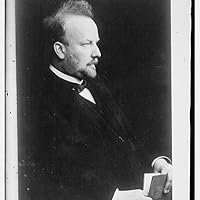Christian History Quotes
Quotes tagged as "christian-history"
Showing 1-11 of 11

“Gnosticism is undeniably pre-Christian, with both Jewish and gentile roots. The wisdom of Solomon already contained Gnostic elements and prototypes for the Jesus of the Gospels...God stops being the Lord of righteous deed and becomes the Good One...A clear pre-Christian Gnosticism can be distilled from the epistles of Paul. Paul is recklessly misunderstood by those who try to read anything Historical Jesus-ish into it. The conversion of Paul in the Acts of the Apostles is a mere forgery from various Tanakh passages... [The epistles] are from Christian mystics of the middle of the second century. Paul is thus the strongest witness against the Historical Jesus hypothesis...John's Gnostic origin is more evident than that of the synoptics. Its acceptance proves that even the Church wasn't concerned with historical facts at all.”
―
―

“Hundreds of young barefoot, long-haired, newly converted believers flocked to the church, and they brought their guitars with them.”
― The Story of Our Songs: Drawing Strength from the Great Hymns of Our Faith
― The Story of Our Songs: Drawing Strength from the Great Hymns of Our Faith

“You see, Jesus didn't die for anybody's sin. He died in the hands of the same kind of morons who peddle him today as the exclusive path to heaven.”
― Her Insan Ailem: Everyone is Family, Everywhere is Home
― Her Insan Ailem: Everyone is Family, Everywhere is Home
“U Bazelu, u Švicarskoj, zaustavili su se u jednom javnom svratištu da steknu novu snagu. Tu su svojim očima mogli vidjeti jadno vjersko stanje koje su prouzročili protestantski reformatori: profanirane crkve, razbijene kipove; ljude su pokapali na otvorenim poljima i bez vjerskih obreda, a lakomci su punili svoje džepove prodavajući dragocjenosti i umjetnine koje su pokrali u crkvama.”
― Rođen da se bori: životopis sv. Ignacija Loyolskog za mlade
― Rođen da se bori: životopis sv. Ignacija Loyolskog za mlade

“However it—or the kind of extreme individualistic epistemology it embraces—can lead historians to an overly skeptical approach particularly to those sources that were intended to recount and inform events of the past, that is, testimony in this restricted sense. Particularly in Gospels scholarship there is an attitude abroad that approaches the sources with fundamental skepticism, rather than trust, and therefore requires that anything the sources claim be accepted only if historians can independently verify it…..”
― Jesus and the Eyewitnesses: The Gospels as Eyewitness Testimony
― Jesus and the Eyewitnesses: The Gospels as Eyewitness Testimony
“Equally, it does not mean that Christian beliefs cause more distortion than other ideological beliefs. This emerged with particular clarity in engaging with the opinion that Jesus did not exist. This view is demonstrably false. It is fuelled by a regrettable form of atheist prejudice, which holds all the main primary sources, and Christian people, in contempt. This is not merely worse than the American Jesus Seminar, it is no better than Christian fundamentalism. It simply has different prejudices.”
― Jesus of Nazareth: An Independent Historian's Account of his Life and Teaching
― Jesus of Nazareth: An Independent Historian's Account of his Life and Teaching

“The Hebrews come into the bread eaters' land with no bread of their own. It's famine, and Jacob's sons travel to Egypt in hopes of finding something to save their families. They find not only grain but forgiveness. Joseph is there, whom God takes from them so he can later deliver them. They find a new home. And they, too, find the miracle of yeast.
Surely the descendants of Abraham bake their grains, mixing flour and oil and kneading it to dough. But this is 'uggah'- a flat cake baked on hot stones or in the ashes, the same given to the Lord by Abraham when he visits and pronounces Isaac's birth. Nomads have no time for fermentation, for waiting for dough to ripen. They have enough to carry from place to place. And they have no ovens, probably have never conceived of such a thing. Again, too heavy to move.
So what must it have been like for them to see these risen loaves come from strange Egyptian baking containers? It becomes part of them, the first thing they cry out for in the wilderness, not any bread but that of those who enslaved them. The Hebrews have freedom. Instead, they want food, their bellies filled with the earthly comfort they know. And God, the heavenly Comforter, sends bread of a different kind.
'What is it?'
They call it 'manna'. And it's given 'to' the wandering children of Israel, but not only 'for' them. For us. For all who brush away the veil and will one day lay eyes on the true manna, a child they do not yet know will be born in Beth-lehem, the house of bread.”
― Stones For Bread
Surely the descendants of Abraham bake their grains, mixing flour and oil and kneading it to dough. But this is 'uggah'- a flat cake baked on hot stones or in the ashes, the same given to the Lord by Abraham when he visits and pronounces Isaac's birth. Nomads have no time for fermentation, for waiting for dough to ripen. They have enough to carry from place to place. And they have no ovens, probably have never conceived of such a thing. Again, too heavy to move.
So what must it have been like for them to see these risen loaves come from strange Egyptian baking containers? It becomes part of them, the first thing they cry out for in the wilderness, not any bread but that of those who enslaved them. The Hebrews have freedom. Instead, they want food, their bellies filled with the earthly comfort they know. And God, the heavenly Comforter, sends bread of a different kind.
'What is it?'
They call it 'manna'. And it's given 'to' the wandering children of Israel, but not only 'for' them. For us. For all who brush away the veil and will one day lay eyes on the true manna, a child they do not yet know will be born in Beth-lehem, the house of bread.”
― Stones For Bread

“The twelve stay.
They eat a final meal with Jesus, and with his hands he tears the unleavened bread and holds it up to them. 'This is my body,' he says. 'Remember me.' And he tells Simon that the adversary has asked to sift them all like wheat, but their faith will be restored. The next day the Christ is lifted up at Golgotha, nailed to a tree, dead before sunset. And when his Spirit leaves him, the temple curtain rends, a veil between God and man. Left exposed in the holiest place is the ark of the covenant, and in that, the manna given to the Hebrews in the desert, life-giving for those who ate of it, but only for a short while here on this earth. And the people remember his words on the shore of Capernaum: 'Your fathers ate the manna in the wilderness, and they died. This is the bread that comes down from heaven, so that one may eat of it and not die. I am the living bread that came down from heaven. If anyone eats of this bread, he will live forever. And the bread that I will give for the life of the world is my flesh.'
His body, crucified, given for them so they may taste eternity.
Three days later, resurrected, so those who believe can come to his banquet table and be filled.
His followers obey. They devote themselves to the breaking of the bread. They remember him each time they eat of it, and offer thanks. They are sustained in the world and rescued from the world because God became man, and man became bread.”
― Stones For Bread
They eat a final meal with Jesus, and with his hands he tears the unleavened bread and holds it up to them. 'This is my body,' he says. 'Remember me.' And he tells Simon that the adversary has asked to sift them all like wheat, but their faith will be restored. The next day the Christ is lifted up at Golgotha, nailed to a tree, dead before sunset. And when his Spirit leaves him, the temple curtain rends, a veil between God and man. Left exposed in the holiest place is the ark of the covenant, and in that, the manna given to the Hebrews in the desert, life-giving for those who ate of it, but only for a short while here on this earth. And the people remember his words on the shore of Capernaum: 'Your fathers ate the manna in the wilderness, and they died. This is the bread that comes down from heaven, so that one may eat of it and not die. I am the living bread that came down from heaven. If anyone eats of this bread, he will live forever. And the bread that I will give for the life of the world is my flesh.'
His body, crucified, given for them so they may taste eternity.
Three days later, resurrected, so those who believe can come to his banquet table and be filled.
His followers obey. They devote themselves to the breaking of the bread. They remember him each time they eat of it, and offer thanks. They are sustained in the world and rescued from the world because God became man, and man became bread.”
― Stones For Bread

“I'm sure you are aware of the history of the Crusaders bringing spices and dried fruits back to England. While these would have been luxuries at first, with the establishment of regular trade routes, spiced cakes would eventually become affordable treats for the common people, and were often associated with the festivals of the religious calendar. Spiced buns, marked with a cross, were being eaten on Good Friday in the fourteenth century, the origin of our Hot Cross Buns, and there are also many local peculiarities linking spices, currants and the church. Banbury cakes, baked for the town's St. Luke's Day fair, are made in an oval shape to signify the cradle of the baby Jesus...
REV. SAMUEL WAVERLEY, Banbury”
― Good Taste
REV. SAMUEL WAVERLEY, Banbury”
― Good Taste
“I decided that to get at the historical Jesus, one should perhaps start by looking at his background: his parents, his family, the places of his birth and life. The Gospels, of course, contained a lot of that stuff, though they didn’t always agree. But one couldn’t prove the validity of the Gospel story by appealing to the Gospel story. But here was the problem I encountered. Using the Muratorian Project Index and my own search of the non-canonical material I had entered, I could find no references to the names of Mary and Joseph, nor to Bethlehem, Nazareth or Galilee, anywhere in the non-Gospel documents of the first century. I decided to look up the name of the man who one might say was the most crucial in Jesus’ life, namely, the man who had tried and executed him: the Roman governor, Pontius Pilate. In the epistles, he appeared only in a single passing reference in 1 Timothy 6:13, at my date of 115. Elsewhere, in all the discussions about Christ’s death and crucifixion, he was nowhere to be found. I could not even locate a reference in Paul or any other epistle writer to the fact that Jesus had undergone a trial! Little did Pilate realize when he washed his hands, that he was washing himself out of the wider Christian record for about 80 years!”
― The Jesus Puzzle: Did Christianity Begin with a Mythical Christ? Challenging the Existence of an Historical Jesus
― The Jesus Puzzle: Did Christianity Begin with a Mythical Christ? Challenging the Existence of an Historical Jesus
All Quotes
|
My Quotes
|
Add A Quote
Browse By Tag
- Love Quotes 97.5k
- Life Quotes 76k
- Inspirational Quotes 73k
- Humor Quotes 43.5k
- Philosophy Quotes 29.5k
- Inspirational Quotes Quotes 27k
- God Quotes 26k
- Truth Quotes 23.5k
- Wisdom Quotes 23.5k
- Romance Quotes 23k
- Poetry Quotes 22k
- Death Quotes 20k
- Happiness Quotes 18.5k
- Life Lessons Quotes 18.5k
- Hope Quotes 18k
- Faith Quotes 18k
- Quotes Quotes 16.5k
- Inspiration Quotes 16.5k
- Spirituality Quotes 15k
- Religion Quotes 15k
- Motivational Quotes 15k
- Writing Quotes 15k
- Relationships Quotes 14.5k
- Life Quotes Quotes 14k
- Love Quotes Quotes 14k
- Success Quotes 13.5k
- Time Quotes 12.5k
- Motivation Quotes 12k
- Science Quotes 11.5k
- Motivational Quotes Quotes 11.5k


